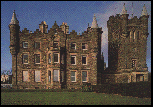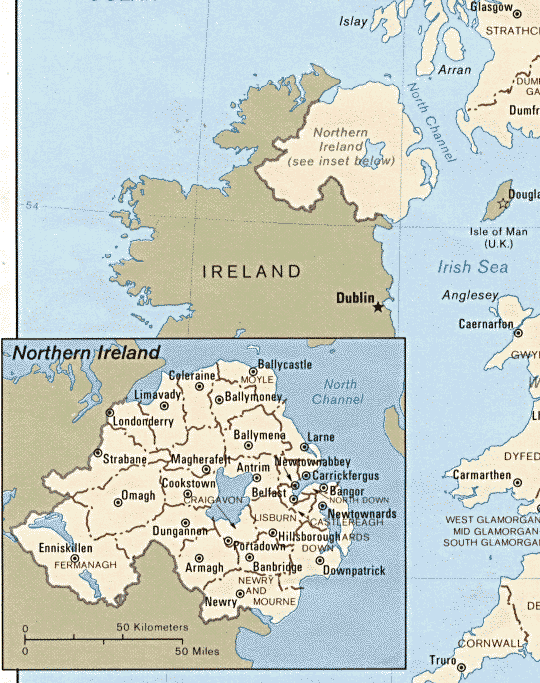
Stormont Castle, Belfast
 Stormont Castle, Belfast |
Earlier, the British government had refused to allow members of the Protestant Orange Order to march through the Roman Catholic village of Drumcree, in the town of Portadown, south of Belfast. The rioting that followed persuaded the government to reverse its position and allow the march, a decision that outraged many Catholics. The march proceeded on Thursday, under the protection of police in armored cars. Violence was kept to a minimum; a number of Catholic protesters were shoved out of the way by police, and others pelted police with home-made gasoline bombs, rocks, and bottles.
On Friday, members of the Orange Order marched in large numbers in towns and cities around Northern Ireland. And Friday night, tragedy hit. A 35-year-old Catholic, Dermot McShane, was killed in Londonderry, hit by a British army vehicle as the troops fought off an attack by a crowds.
Over the weekend the violence escalated, and just after midnight Sunday morning, a bomb exploded at the Killyhevlin Hotel in Enniskillen. It was the first blast in Northern Ireland since 1994. No one was killed by it, but as the new week dawned it was clear that the events of the preceding week had not only thrown the peace talks into jeopardy but brought Northern Ireland back to the brink of civil war.

In the seventeenth century six northern counties of Ireland were colonized by the British, who gave the region its Protestant majority. The province became a part of the United Kingdom in 1920, hence the official name of the state: The United Kingdom of Great Britain and Northern Ireland. The British province occupies much of the territory that once constituted the Irish kingdom of Ulster.
Along with their co-nationals throughout Ireland, the Roman Catholics of the northern counties greatly resented British-Protestant rule. This became especially true after the establishment of the Irish Free State in 1922, which partitioned Ireland. The treaty with Great Britain granted partial independence to the 26 counties of the south, where the population is about 95 percent Catholic, but maintained direct British rule over the six northern counties. In 1949, the 26 southern counties gained full independence and became known as the Republic of Ireland.
In the late 1960s, civil strife erupted between the Catholic minority of Northern Ireland and the Protestant majority, and the conflict has persisted intermittently ever since. On both sides, militant factions have resisted accommodation, and the activities of the Irish Republican Army (IRA), based in the Republic of Ireland, have long terrorized inhabitants not only of the Protestant community of Northern Ireland but throughout the United Kingdom.
Peace talks began in 1994 after the IRA declared a cease-fire and its political arm, Sinn Féin, was included among the participants in the talks.
Here are several links to relevant materials: